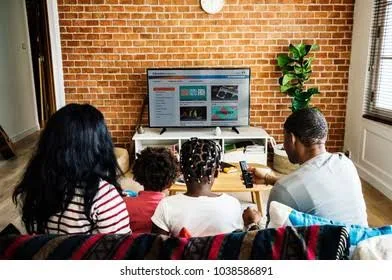How Digital Communication is Changing Family Life in Nigeria
Today, how we talk to each other has changed a lot because of technology. In Nigeria, where family is very important, these changes are seen clearly. Let's look at how tools like WhatsApp, Facebook, and video calls are affecting Nigerian families.
Staying Close Even When Far Away
Nigeria is a big country, and many people move to cities or even other countries for work or better opportunities. This often means being far from family. Digital tools like WhatsApp and Skype help us stay in touch. With video calls and instant messages, families can see and talk to each other no matter the distance. For example, grandparents in the village can regularly talk to their grandchildren who live in Lagos or abroad, helping them feel close despite the distance.
Bringing Families Together
Digital communication makes it easy to share daily life with family. Many Nigerian families have WhatsApp groups where they share updates, jokes, and make family decisions. These group chats act like virtual living rooms, keeping everyone connected and involved in each other’s lives, which strengthens family bonds.
Keeping Our Culture Alive
These digital tools also help in preserving our Nigerian culture. Families can use these platforms to teach children about traditions, languages, and history. Parents and grandparents can share stories, proverbs, and customs through voice notes or videos, making sure that cultural knowledge is passed down even in a modern world.
Problems and Challenges
While digital communication is helpful, it can also cause problems in family relationships. One issue is that it might reduce face-to-face interaction. Because it's so easy to talk online, some people might choose digital communication over visiting in person, which can weaken family ties.
Another problem is that smartphones and social media can be distracting. It’s common to see family members busy with their phones during meals or gatherings, which reduces quality family time. This habit, known as "phubbing" (phone snubbing), can make family members feel ignored.
Privacy and Misunderstandings
There’s also the risk of privacy issues. Sharing information online can sometimes lead to oversharing or accidental exposure of personal matters, causing conflicts. Also, text messages can be misunderstood because they lack non-verbal cues, leading to miscommunication.
Finding a Balance
To get the best out of digital communication while avoiding problems, Nigerian families need to find a balance. This means setting rules for phone use during family time to ensure digital interactions don’t replace face-to-face communication. Families can plan regular gatherings or digital detox days to keep personal connections strong.
Conclusion
Digital communication has changed family life in Nigeria in many ways. By using these tools wisely, families can stay connected, keep their culture alive, and maintain strong relationships despite distances. However, it's important to be aware of the downsides and work towards a balance that keeps traditional family interactions alive. As technology continues to grow, our approach to family communication must also adapt to ensure we stay connected and strong.





Comments